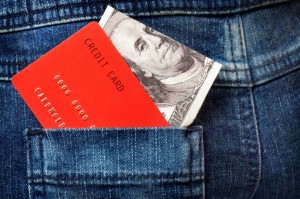 Credit cards seem to be a blessing and a curse for many individuals. Establishing credit history is important for consumers to earn a high credit store, which will help in securing loans for large purchases such as homes and cars and starting up businesses. However, many people mismanage their credit cards and find themselves in a mountain of debt. Once credit card debt becomes out-of-control, cardholders face serious financial complications to their credit history and personal assets.
Credit cards seem to be a blessing and a curse for many individuals. Establishing credit history is important for consumers to earn a high credit store, which will help in securing loans for large purchases such as homes and cars and starting up businesses. However, many people mismanage their credit cards and find themselves in a mountain of debt. Once credit card debt becomes out-of-control, cardholders face serious financial complications to their credit history and personal assets.
If a cardholder defaults on credit card payments, the credit card company may sue the debtor depending upon the amount owed. To avoid being sued, debtors can attempt to negotiate with creditors to see if they’ll offer an affordable payment plan. If this does not work, debtors can opt for a free counseling session with a reputable debt relief company and inquire about options to settle their debt. Credit card debts are generally unsecured debts, which are debts that are not tied to an asset like a car for a car loan, or a house for a mortgage. However, in spite of the unsecured status, credit card debt can be attached to the debtor’s real estate, if the debtor defaults on payments and is sued by the credit card company.
Referring a collection agency
When a debtor defaults on credit card payments, the credit card company might attempt to collect the debt through informal means. This might include letters and phone calls from the credit card companies. The creditor might contact a collection agency to undertake the debt collection process. If this fails, the creditor then might hire a collection attorney to pursue the debtor.
Filing a lawsuit
Once the lawsuit is filed, the debtor is notified of the complaint and is also informed about the factual and legal basis for the lawsuit. Once the Summons is served, litigation begins. Depending on the state in which the lawsuit is filed, the debtor will have a certain number of days to respond to the Summons.
Judgment Lien
In case the debtor ignores the Summons, the collection attorney might apply for a default judgment. The judgment lien gives the creditor the right to take possession of a debtor’s real property if the debtor fails to meet his or her contractual obligations. The judgment can become a lien on the borrower’s real estate. It allows the creditor to access the debtor’s personal property, business and real estate to pay the amount owed.
Homestead Protection Act
Homestead exemption laws protect some or all of a debtor’s primary residence from judgment liens. These laws have three main characteristics:
- They prevent the forced sale of a house to pay the amount owed to the creditors.
- They give shelter to the surviving spouse.
- They provide an exemption from taxes on property.
The homestead exemption laws basically restrict a credit card company from foreclosing on the debtor’s home to prevent families from losing their homes.
Who is responsible for the credit card debt of the deceased?
When a debtor passes away leaving credit card debt, typically the estate is responsible for paying back the debts. If the assets of the estate are insufficient to pay off the debt, the estate is declared to be insolvent. If the estate is insolvent, credit card debt may go unpaid depending on the value of the estate and state statutes prescribing the order in which creditors are paid (for more on this, see Jayne Sykora’s article What Happens To Debt At Death?). A lender might repossess property, if there was any secured debt like the one for the purchase of an automobile. Again, if there was a mortgage, the creditor might take full possession of the property.
Avoid defaulting on credit card payments
Credit cards do play an important role in building credit, however being careless about credit card debt can cause significant trouble. Not only do individuals risk financial difficulties, they also face emotional strain. Being in overwhelming debt and harassed by creditors can take a severe toll on the emotional and mental health of debtors. To avoid such problems, it is advisable to make payments on time and to pay off debt as much as possible.
If you have any current financial problems, do not avoid calling the credit card company. Many companies are responsive to helping cardholders take control of their debt. Just a simple call to your creditor can save you from financial disaster and help secure your financial freedom.
